'There is space for every girl and woman in football'
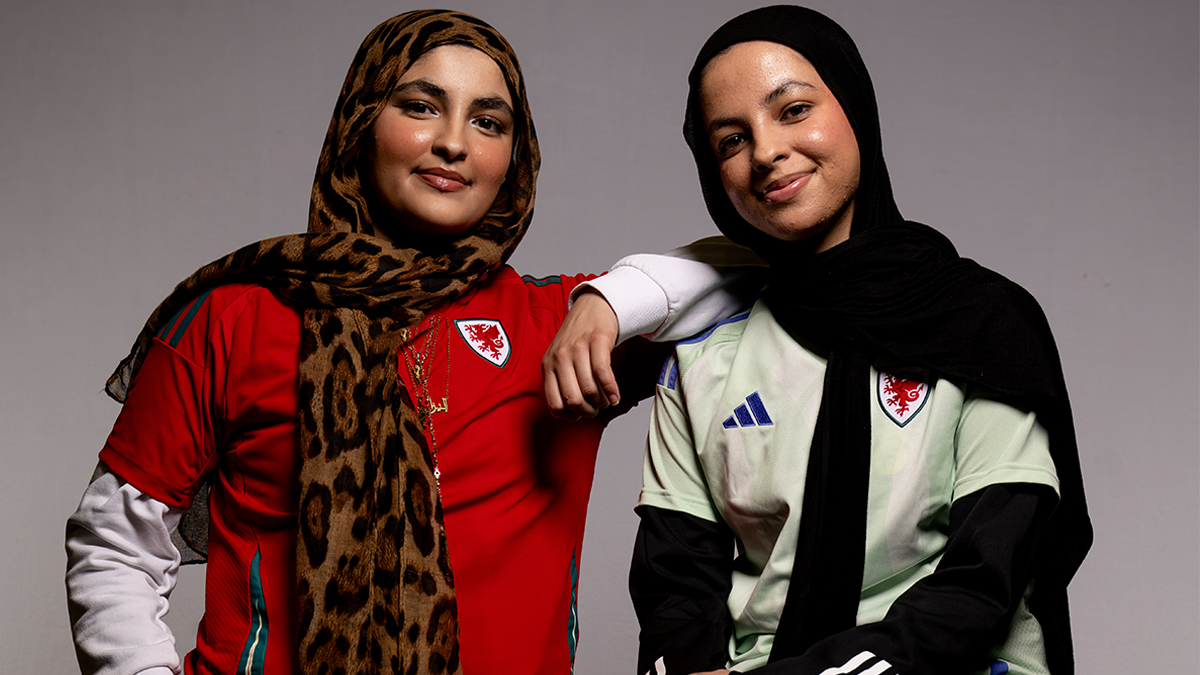
Sisters Rosheen Khan (right) and Eleeza Khan are Wales' first Muslim female football referees
- Published
When Wales sets foot on the global stage of the Women's Euro 2025, so does the weight of their representation.
As trailblazers and history makers, the likes of Jess Fishlock and Hannah Cain have inspired a new era of budding young feet across the country.
But while Wales may be etching closer to a level playing field in the world of football, for many girls and women the prospect of taking a ball onto a local pitch remains out of their comfort zone.
Speaking to players, coaches, supporters and those in between, they said there was space for all women to get involved and "find their place" in the game.
Sisters Rosheen Khan, 21, and Eleeza Khan, 19, from Cardiff, made history in 2023 by becoming Wales' first Muslim female football referees.
They said now was the perfect opportunity to get involved, as "we are living examples of that".
Pitch-sized mural of Wales star Fishlock unveiled
- Published26 June
Fans give Wales colourful Euro 2025 send-off
- Published22 June
Wales' victory inspires next generation of players
- Published4 December 2024
"So many people only watch women's football games, as they're truly one of the most inclusive," said Eleeza.
She said women wearing hijabs is not something typically seen in the football community, but community members in Grangetown, Cardiff, have really embraced it.
"One of nicest things was at my local community centre... a mum told me she hopes her daughter will grow up to be like me," Eleeza said.
But she said certain football trends were not inclusive, including watch parties in pubs involving alcohol which many Muslim women won't take part in.
"It's having those awkward conversations, explaining why you may not take part, and making sure girls like me aren't getting left behind."
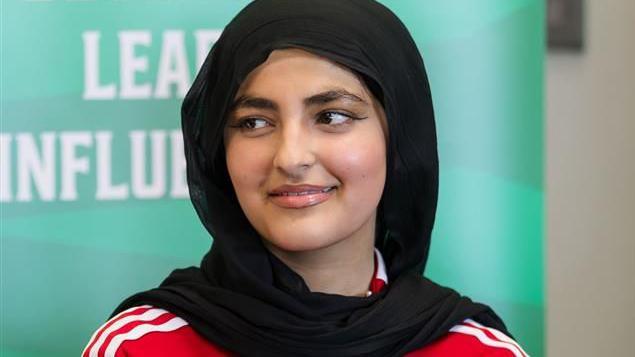
"Now is the perfect opportunity to get involved, we are living examples of that," says Eleeza
Rosheen agrees the impact of their visibility has been huge in their community, so much so she has been stopped in the streets.
She said she felt very grateful to be able to contribute to the football community in their city, recalling being a little girl in the park using two jumpers as goals.
Attitudes are definitely changing, Rosheen said, but more needs to be done.
Her biggest hope is for more grassroots spaces to develop, and to see a lot more jobs created within that.
"When I was trying to get into it I lacked confidence, so my biggest advice would be to just go for it," she said.
"My mum always says 'you have to climb the mountain, not carry it on your shoulders'."
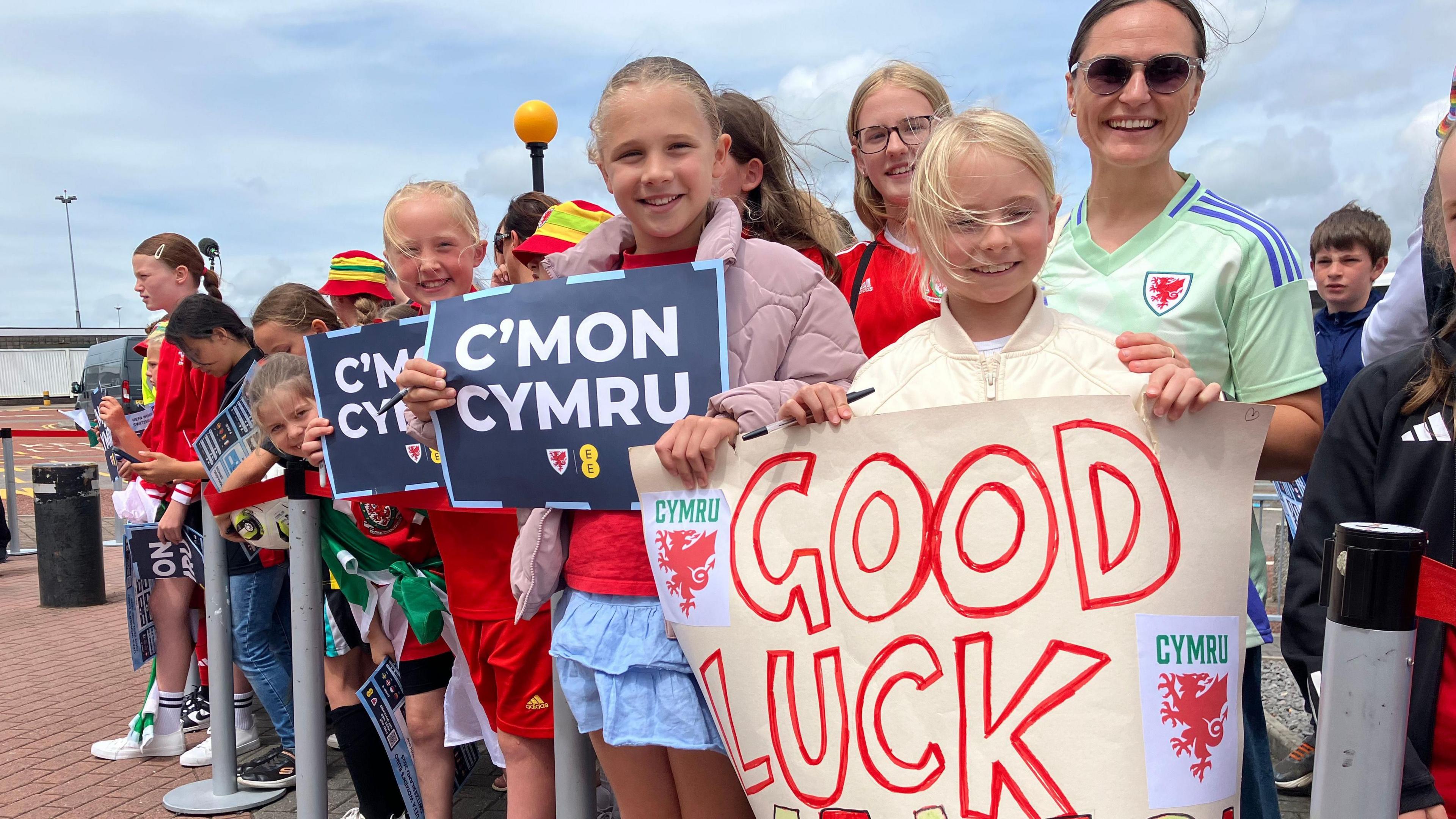
The Football Association of Wales (FAW) is encouraging all girls and women to get involved with the sport
Wales' captain Angharad James said Cymru qualifying for Euro 2025 was "so much bigger than just the football on the pitch".
"It's about showing women and girls across the country that this game is for them too," she said.
"Whether they want to play, coach, referee, work behind the scenes or support from the sides, I want every girl and woman in Wales to know there's a place for them in this game, whatever role they want to play."
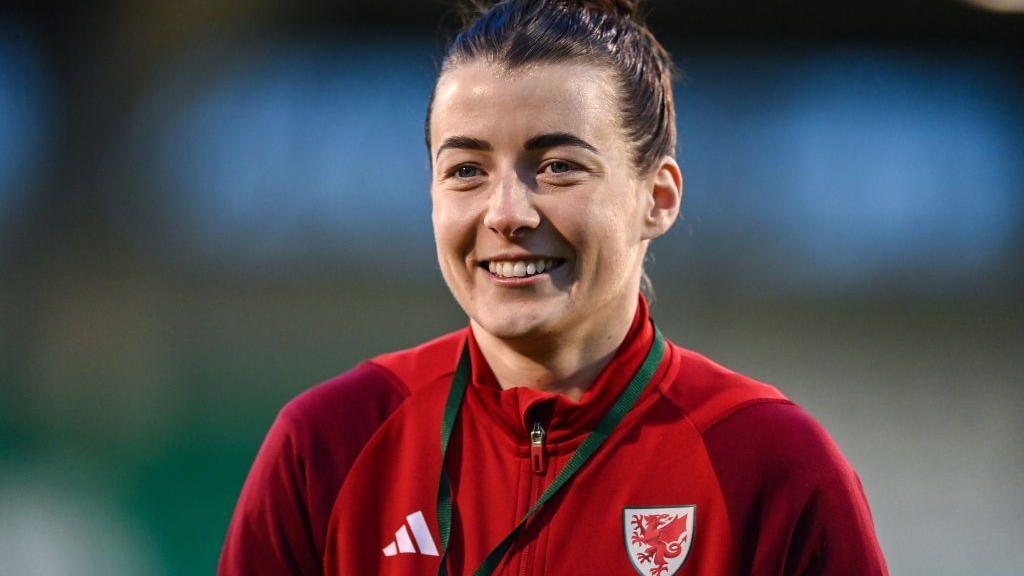
"I want every girl and woman in Wales to know there's a place for them in this game, whatever role they want to play"
Influenced by watching Wales and her daughter Yasmin's passion for the game, Marisa Teodósio, from Cardiff, started playing football for the first time at the age of 45.
Marisa, who has no family in the UK, started coaching at Canton football club and said she had been welcomed to the community, giving her a sense of belonging.
"Football is so inclusive," she said, adding: "I've never been overlooked at all.
"It's the highlight of my week, football to me is a life skill, it teaches resilience.
"So many girls can come together to play a game they all love.
"The main thing is we do not know everything, we are all learning, but we all learn together, we learn with the girls as well.
"Just get involved, you will love it."
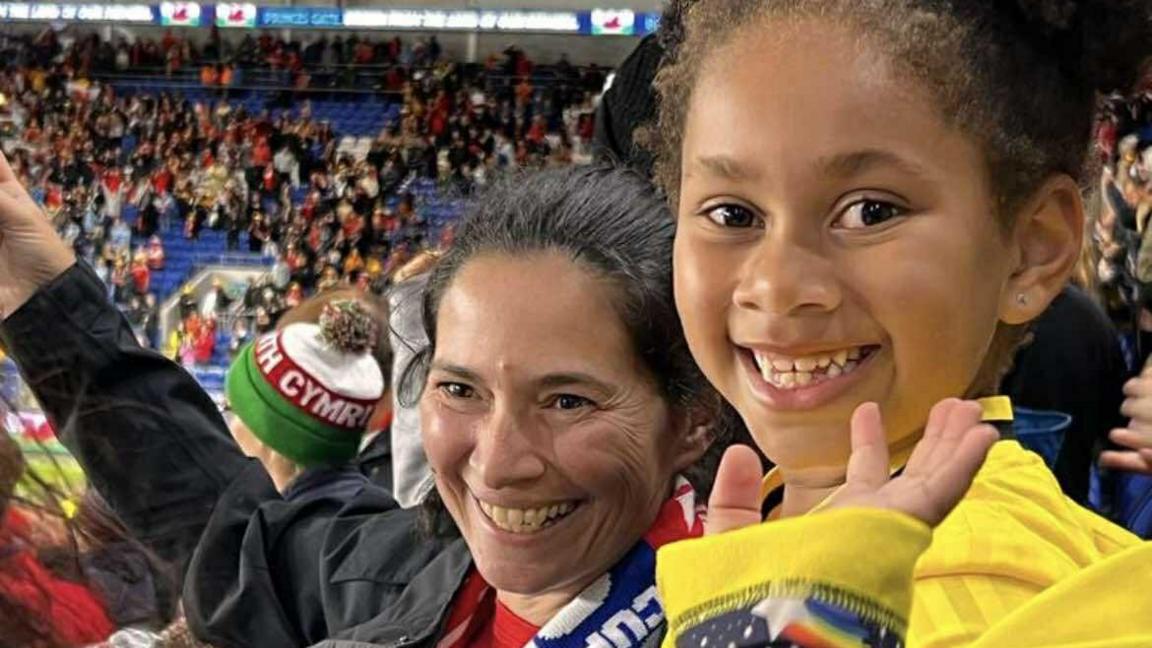
Marisa Teódosio (left) started playing football at the age of 45 after being inspired by watching Wales
Ceri Williams started refereeing across the junior leagues in Swansea at the age of 14, and has gone on to referee in the Uefa Women's Champions League and most recently the FA Women's Cup final.
She wants other women and girls to feel inspired and get involved, as she says everybody comes from different backgrounds and gets into football in different ways.
"It's about getting people involved in sport, a lot of girls growing up would swim, run or go to the gym, but they may not consider football," Ceri said.
"You don't need to be the best player, I'm an absolutely awful footballer, but I don't need to be.
"Football is a team sport, even if you take the referee route, you still feel like you're part of a team.
"Some people have played since the age of five, while other women in their 30s and 40s realise 'this is fun' and get involved... nobody is better than anyone else."
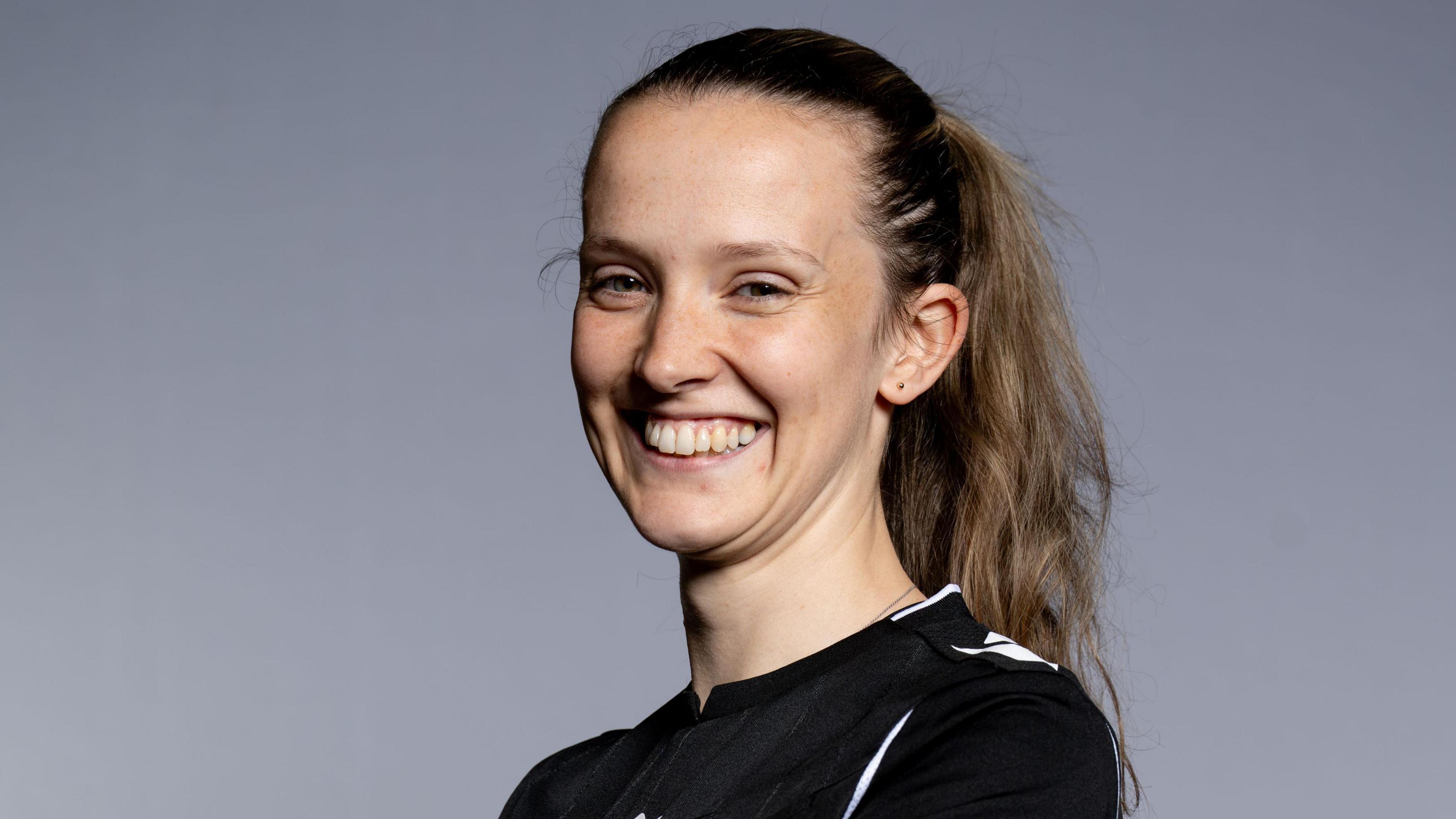
Referee Ceri Williams says girls and women from different backgrounds can get involved in football in different ways
Ceri has always loved football, and said her football journey started when she was eight years old going to watch Swansea with her dad.
But the atmosphere of women's football is much more family-orientated than men's, she said, adding her dad would have taken her at a much younger age if he had the opportunity to.
"It's the 'if you can see it, you can be it' mentality," she said.
Ceri said there was slow progress in grassroots football, and a focus on providing safe spaces on pitches and changing facilities is needed to make sure girls and women do not feel like an inconvenience.
While participation is on the up, she hopes the tournament will bring more growth to the game.
"I saw the growth in the women's game over in England during the last Euro campaign, if we achieve even 5% of that growth over here, it would do so much for the game," she said.
How many more women and girls play football in Wales?
Female player registrations have increased 52% since 2022, according to the Football Association of Wales (FAW), which said it spent £4m over that period developing off-field and changing facilities for women and girls.
It also spent £4.5m on artificial pitches with protected time for female teams.
Bethan Woolley, FAW strategic lead for women and girls football, said more investment in the grassroots game for women was being considered.
"We're looking [at a] funding grant for clubs ready for the next season to take more girls on so that there's less costs and less barriers to take in more memberships," she said.
Cymru Football Foundation was advising on how to ensure the facilities being developed were "appropriate for female participants", she added.
The FAW said since the 2021-22 season there had been a 46% increase in under-18 registrations for girls, a 51% increase for girls aged 14 to 17, and a 53% increase for girls aged six to 13.